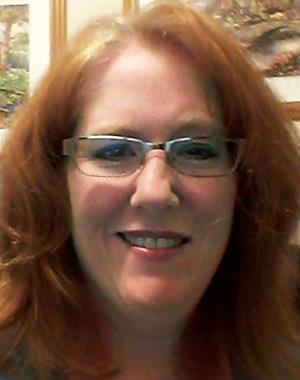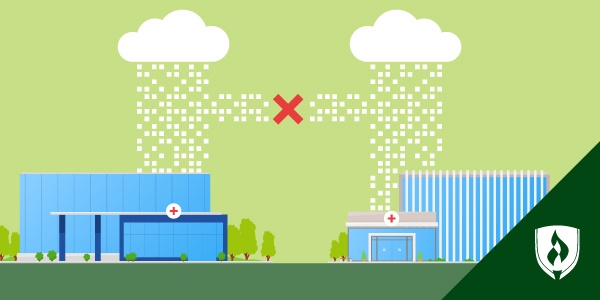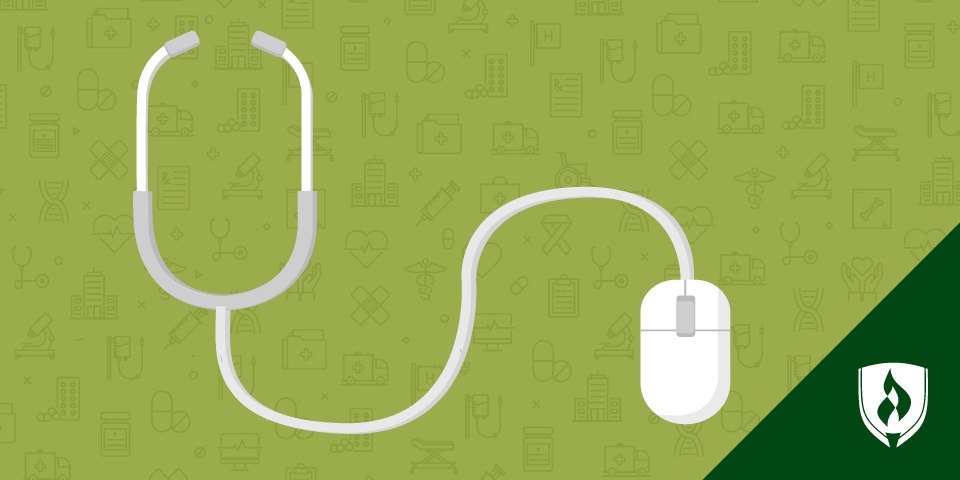Land O’ Lakes, Fla., student Lesley Johns hit a peak professionally. Her career had plateaued after years of working as an LPN, so in an effort to broaden her career horizon she decided to branch out and enroll in Rasmussen College’s health information technology program.

This is the story of how Johns decided to diversify her education and how that decision has paid off.
Path to Rasmussen College
Johns spent some time in college after graduating high school in 1989, but admits her motivation was lacking at the time and she left before finishing a degree.
“You can’t force yourself into school,” Johns says. “When I first went to college I didn’t really know what I wanted to do with my life so I didn’t end up taking the work seriously.”
Over time Johns did find a calling in caring for others, but not initially in a nursing capacity. She spent time volunteering at a wildlife rescue facility, thinking she would someday like to work with animals. Those plans never materialized, so after attending school in Texas to become an LPN, she began working with patients of the human variety. Her inspiration to pursue nursing came in part from an aunt who worked as an LPN.
“It’s kind of weird, but one day I helped [my cousin] remove a splinter from her finger and my aunt mentioned that I should be a nurse,” Johns says.
Johns started working as a nurse in 1996 and spent seven years caring for others. The work was steady, but Johns found she was hitting a wall professionally.
“I kind of reached the ceiling for where I could go as an LPN in a hospital setting,” Johns says. “I decided I wanted to go in a different direction where I could stay in health care but do something a little different.”
Johns eventually transitioned into a concurrent review nurse position for Humana in 2011. Her position there was a transition from the direct patient care role she had as an LPN, but definitely an avenue of healthcare work she wanted to pursue further.
Johns’ friend, a Rasmussen College student, recommended she try Rasmussen College after hearing of her desire to continue pursuing a career in indirect patient care. Her friend’s recommendation, along with her own research, was enough for Johns to feel comfortable with enrolling. Johns says the flexibility of taking online classes was a big factor in her decision because her work duties and child rearing responsibilities were already time-consuming.
Translating experience into education
Johns had one large advantage over some of her classmates when the time came to start her coursework—experience. Johns’ experience, however, wasn’t enough to calm all of her worries before starting at Rasmussen College. One of her biggest concerns was whether she’d be able to keep up with her online coursework.
“At first I was a little apprehensive and it was different getting used to having discussion posts and how assignments are formatted,” Johns says. “Once I got into the routine of knowing when I’ll have homework to do it got easier—it works for me.”
Johns’ work with Humana involved some exposure to medical coding and terminology, which did help build her confidence, at least for a little while.
“I thought I knew a lot about medical coding until the first class,” Johns says. “That was kind of a ‘whoa’ moment—coding is definitely more in-depth than I had thought.”
Mapping her future
Johns had a lot to learn and manage between school, work and family but appears to have found a groove. She anticipates earning an associate degree in HIT by March 2014 and plans on returning to school to earn her bachelor’s degree in health information management.
Johns says she can hardly wait for graduation.
“It’ll be great to have my kids see me graduate and go through the ceremony,” Johns says. “I think it helps me set an example and it is good for the kids to see that their mom is doing well in school.”
Johns’ next step after completing her associate degree, however, is passing the RHIT exam. The test is a hurdle, but Johns says she’s begun studying and is feeling pretty confident in her abilities.
Johns hopes to continue working for Humana, which is one of the largest health insurance providers in the country, and move into a department where she could use a mix of both her nursing and HIT skills. She even admits to doing a little research in advance.
“Just for information I look at the job listings at Humana and see what positions I might want to apply to,” Johns says.
Her career planning, while maybe a little early, should pay off if her determination and focus continue to carry her through earning a bachelor’s degree.
Are you ready for a change?
Has your healthcare career trajectory leveled off? Don’t accept stagnation. A degree in health information management can help you find new avenues to the top of the medical field. Check out our degree pages to learn more on how you can take the next step.




